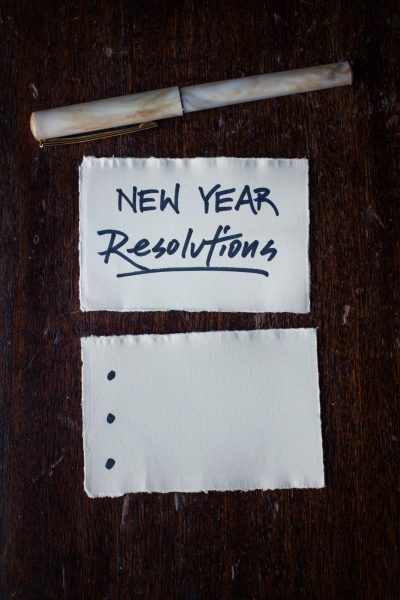As 2024 begins, many resolutions are being set. According to a survey from Forbes Health, the most common resolutions this year are improving finances, fitness, and mental health. The survey also discovered that most people stop pursuing those resolutions within the first four months.
“I think New Year’s resolutions can be helpful for some people, but from my experience most people give up within the first week,” DRHS senior Maryn Talyat said.
It seems that New Year’s resolutions are fading out, though. According to a survey done by YouGov, only about 34% of American adults will make a resolution for the new year in the first place.
“I do have New Year’s resolutions,” DRHS social studies teacher Kacie Weikel said. “It’s not so much to change things, but rather to maintain a healthy lifestyle, practicing lots of yoga, and trying to find healthy outlets for life and stress.”

For those that decide to pursue a resolution, the best way to follow through with that is to hold yourself accountable and create smaller goals. For example, creating a goal to work out every day can be hard to achieve when working out isn’t a part of your routine at all. Instead, make a goal to work out two to three times a week for the first month, and then subtly increase that.
Starting over at the new year is a great idea overall, and that works well for some people, but it can be very overwhelming for others. Goals can begin any day of the year. Instead, use the new year as a check in to make sure you are pursuing the lifestyle that best benefits you.
“In my past I have found New Year’s resolutions to be both good and bad,” Weikel said. “I’ve found it to be a good reset and a way to change my perspective by trying something new. I’ve also seen it as bad because this time of year can be difficult and overwhelming, and when you try to change a lot of things at once, and you aren’t able to do it, you can feel like a failure. The hope of changing things is good, but the expectation that everything will go the way you want is not.”









